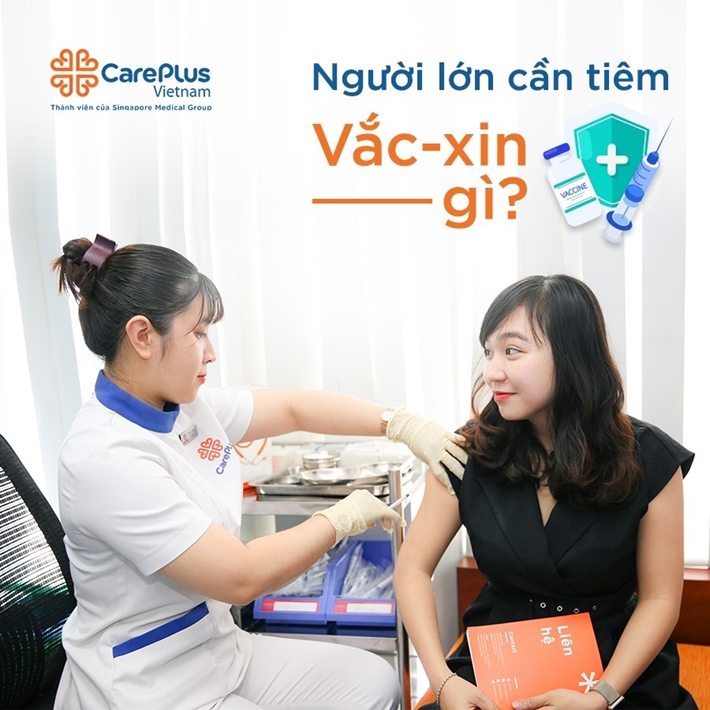What vaccinations should adults get?
Rất nhiều người trưởng thành (từ 18 tuổi trở lên) nghĩ rằng mình không cần tiêm vắc-xin. Sự thật là, có rất nhiều bệnh truyền nhiễm nguy hiểm luôn rình rập và tấn công người lớn, gây ra những hậu quả đáng tiếc. Theo Tổ chức Y tế Thế giới (WHO), mỗi năm trên thế giới có hơn 1,5 triệu người tử vong vì những bệnh truyền nhiễm có thể phòng ngừa bằng vắc xin.

7/21/2020 11:15:35 AM
Người lớn cần tiêm những vắc-xin nào?
1. Cúm: tiêm 1 liều và tiêm nhắc lại mỗi năm 1 lần
2. Viêm gan B: tiêm 3 liều và tiêm nhắc lại sau 5 năm
- Liều 1: lần tiêm đầu tiên
- Liều 2: cách liều đầu tiên 1 tháng
- Liều 3: cách liều đầu tiên 6 tháng
3. Viêm gan A: tiêm 2 liều, mỗi liều cách nhau 6-12 tháng.
4. Viêm mãng nào, nhiễm khuẩn huyết, viêm tai giữa, viêm phổi do phế cầu khuẩn: tiêm 1 liều duy nhất
5. Viêm màng não, nhiễm khuẩn huyết, viêm phổi do não mô cầu khuẩn A,C,Y,W: tiêm 1 liều duy nhất. Chỉ tiêm nhắc lại trong trường hợp đặc biệt.
6. Ung thư cổ tử cung và các bệnh lây truyền qua đường tình dục do HPV: tiêm 3 liều
- Liều 1: lần tiêm đầu tiên
- Liều 2: cách lần tiêm đầu tiên 1 tháng
- Liều 3: cách liều đầu tiên 6 tháng
7. Thủy đậu: tiêm 2 liều cách nhau tối thiểu 6 tuần. Phụ nữ có kế hoạch sinh con hoàn tất lịch tiêm trước khi mang thai 3 tháng
8. Bạch hầu– Ho gà– Uốn ván: tiêm 1 liều và tiêm nhắc lại sau mỗi 10 năm
9. Uốn ván: tiêm 3 liều
- Liều 1: lần tiêm đầu tiên
- Liều 2: cách liều 1 tối thiểu 1 tháng
- Liều 3: cách liều 2 từ 6-12 tháng
10. Sởi – Quai bị - Rubella: tiêm 2 liều, mỗi liều cách nhau tối thiểu 1 tháng